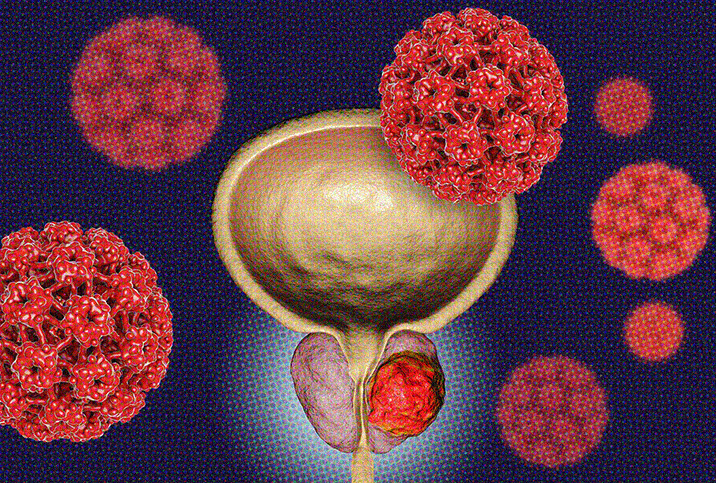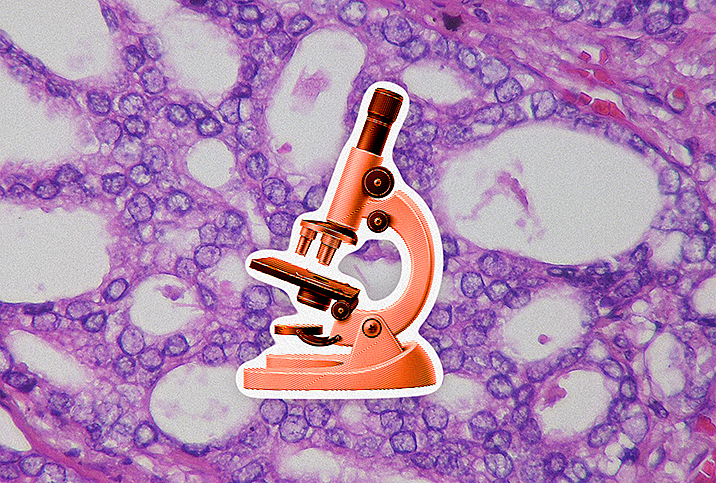Checking Your Risk for Prostate Cancer

Prostate cancer affects about 13 out of every 100 men, making it one of the most common cancers in men. It's characterized, like most cancers, by an uncontrolled growth of cells in a targeted area, in this case the prostate, a walnut-sized gland located below the bladder and in front of the rectum that's vital to reproductive health in a number of ways.
Some types of cancer grow gradually and may not need intervention, while others can spread quickly and may require surgery, radiation therapy, immunotherapy or other forms of treatment.
Prostate cancer, despite being a very serious condition, typically has a positive prognosis if it is detected early. Knowing the risk factors and what to look for can keep you on track for optimum health.
Common risk factors
While all men face the risk of prostate cancer, certain factors may increase your chance of developing it. Identifying these factors can help guide you toward the appropriate actions for maintaining your health.
Five of the most common risk factors for developing prostate cancer include:
Age
Age is the largest risk factor for prostate cancer: Simply put, the older you are, the greater your chance of developing the disease. About two-thirds of all prostate cancer cases occur in men 65 and older, whereas only 1 in 10,000 men younger than age 40 will be diagnosed with the disease. The only good news is that the older you are, the less aggressive the disease is likely to be, especially after age 70.
Family history
If you have relatives who have had prostate cancer, you are at a higher risk. If your father or a brother has had prostate cancer, for example, your chances of getting it double. The level of risk tends to be associated with the number of relatives diagnosed with prostate cancer, how closely related they are to you, and how young they were when they were diagnosed. The younger your relative was at time of diagnosis, the higher your chance of developing it.
Race & ethnicity
African American men have the highest rate of prostate cancer, and they are also more likely to die from the disease than other men. Prostate cancer is less common in Asian and Hispanic men than in non-Hispanic white men.
Diet
A diet that is rich in high-fat dairy products and red meat may increase the risk for prostate cancer. A 2010 study examined 101 cases of prostate cancer and discovered a correlation between diets high in meat and fatty dairy products and prostate cancer. Additionally, a 2017 study observed the diets of 525 men who had recently been diagnosed and found a correlation between high-fat milk consumption and the progression of prostate cancer.
Obesity
A recent study from the Columbia University Mailman School of Public Health linked being overweight in middle age and later adulthood to a greater risk of prostate cancer. Drawing on data from 15 studies, the researchers looked at associations between body fat, height and prostate cancer risk in more than 800,000 men, approximately 51,000 of whom had been diagnosed with prostate cancer. In men from the ages of 50 to 64, high body mass index (BMI) was linked to the greatest risk of developing advanced prostate cancer. BMI is a measure of body fat based on height and weight.
Consider screening guidelines
While these factors may increase your risk of prostate cancer, they don't necessarily cause the disease. Some people with one or more of these risk factors may never actually develop prostate cancer, while others develop it without having any of the risk factors.
The U.S. Preventive Services Task Force recommends that men between the ages of 55 and 69 should make an informed decision for themselves whether to undergo a prostate screening test after discussing it with a doctor. Prostate cancer screening is composed of a prostate-specific antigen (PSA) blood test and digital rectal exam (DRE) to feel for nodules or lesions on the prostate.
To reiterate, making a decision to get screened should be a shared process with a urologist based on risk factors, health conditions, your anxiety level and other considerations. It's never too late, or too early, to take charge of your prostate health.


















